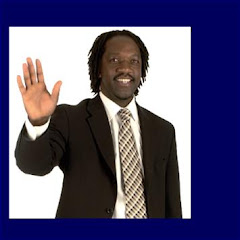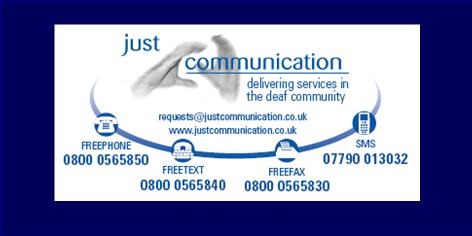Joseph and John Yeh guilty of conspiring to defraud the Federal Communications Commission’s Video Relay Service program writes Kevin James Shay for Maryland (USA) Community News Online (01/12/11).
A federal judge on Wednesday sentenced John T.C. Yeh, former CEO of Rockville deaf services business Viable, to nine years in prison and ordered him to pay restitution of $20 million for his role in a multimillion-dollar government fraud case.
His brother, former Viable vice president Joseph Yeh, received a prison sentence of 55 months on Wednesday and also was ordered by Judge Joel A. Pisano to pay $20 million in restitution.
In November 2009, John and Joseph Yeh were among 26 people nationwide to be indicted for conspiring to defraud the Federal Communications Commission’s Video Relay Service program, which helps deaf people communicate, by billing the government for millions of dollars in illegitimate calls. They pleaded guilty to conspiracy to commit mail fraud in October 2010.
John Yeh is eligible for a credit of his prison term when he was held during revocation of bail, according to records from U.S. District Court in Trenton, N.J.
Paul F. Kemp, a partner with Ethridge, Quinn, Kemp, McAuliffe, Rowan & Hartinger of Rockville who represented John Yeh, noted that prosecutors were asking for 15 years in prison and the maximum prison sentence the brothers faced was 20 years. He said Wednesday that he does not plan to appeal the sentencing.
“I wish [the prison term] had been shorter, but the judge tried to be fair,” Kemp said. “He was trying to find a middle ground.”
Stanley J. Reed, a principal with Lerch, Early and Brewer in Bethesda who represented Joseph Yeh, also said Wednesday he does not plan to appeal his client’s sentence.
“The judge did a superb job of balancing all of the issues and factors,” Reed said. “Joseph and John are grateful for the amazing outpouring of support they got from the community and the deaf community.”
About 100 people, many from the deaf community, traveled from across the country and even from overseas to support the Yehs at the sentencing hearing, Reed said.
About eight character witnesses testified on the Yehs’ behalf Wednesday, which likely helped their case, Kemp said. “We were grateful to the witnesses who came forward,” he said.
Pisano recommended to the Bureau of Prisons that the Yehs be incarcerated together in a federal prison camp in Cumberland, to be close to family members and be provided with all services they were entitled to under federal disability laws.
During the four-plus-hour hearing Wednesday, the Yehs were “remorseful, somber, scared and very focused on listening to everything the judge said,” Kemp said. The Yehs are not eligible for parole but can receive five days of “good time” per month credited against their prison terms, he said.
Pisano also sentenced both Yehs to three years of supervised release.
“It was a long journey to get here,” Kemp said. “We are glad that we had a thoughtful, considerate judge.”
Two other former Viable executives, Anthony Mowl and Donald Tropp, are among those who have pleaded guilty in the case. They are scheduled to be sentenced by Pisano on Dec. 14 in New Jersey, according to court documents.
John Yeh has long been involved with organizations that advocate for the deaf community, such as the National Asian Deaf Congress and National Deaf Business Institute. He was a trustee of Gallaudet University, a Washington, D.C., institution that specializes in education for deaf people, for more than a decade. Deaf Life, a monthly national magazine founded in 1987, honored him as its Deaf Person of the Year in 2008.
Yeh founded Viable in 2005 to develop and market real-time transcription text and video relay services to help deaf and other hard-of-hearing people communicate. Within three years, Viable had shot up from a handful of workers to almost 200 full- and part-time employees, while annual revenues exceeded $7 million.
But prosecutors said in court documents that Viable charged the government for millions of dollars in illegitimate, or “run,” calls.
A previous business that John Yeh formed, software engineering and integration company Integrated Microcomputer Systems, in Rockville with the help of his brothers, reached $40 million in revenue in 1995 before he sold it in 1996.






No comments:
Post a Comment